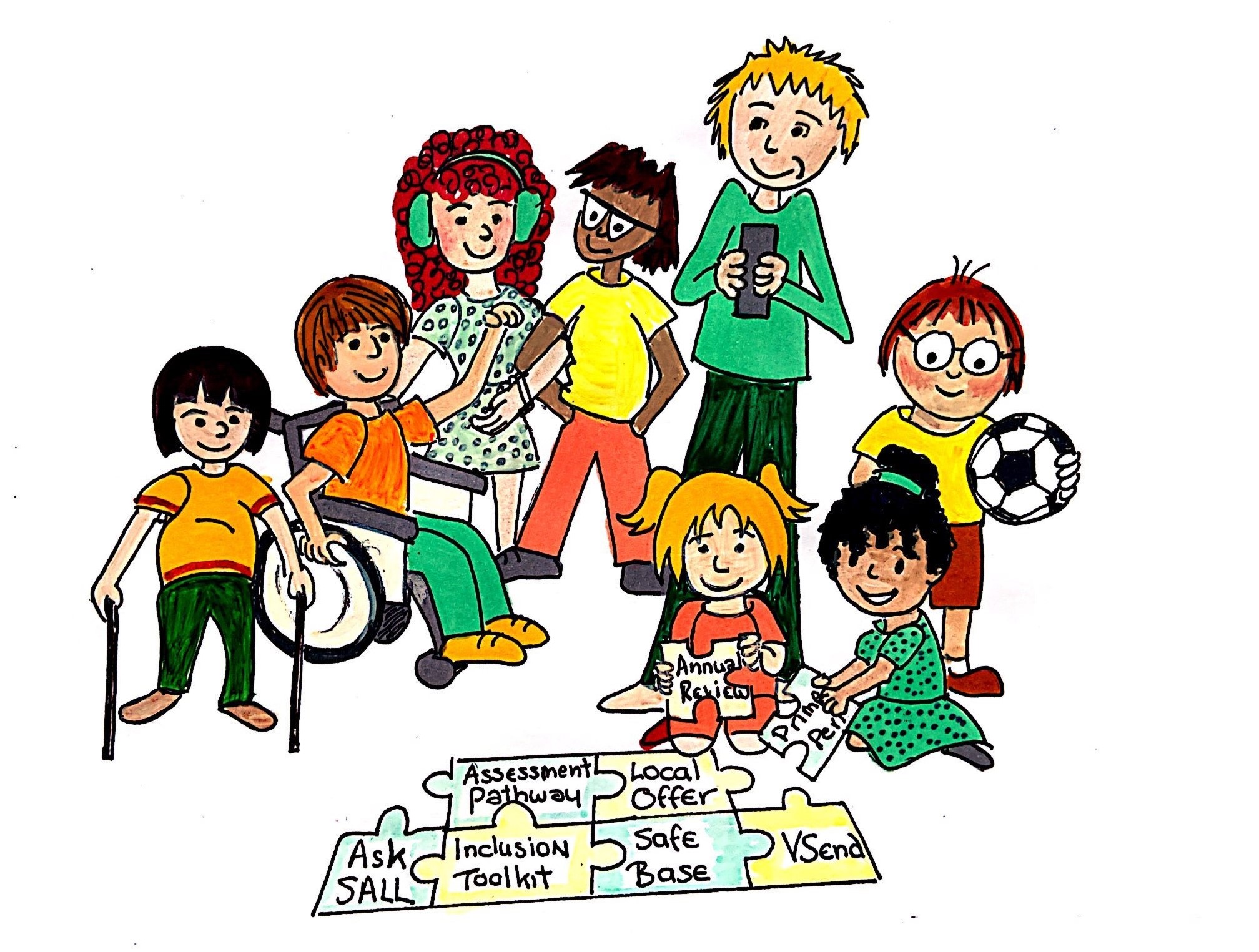Level 1-2 strategies to support high quality teaching
0-5
If there are concerns regarding a child’s vision then the family need to talk to their GP to have the child’s vision thresholds checked
- setting staff to undertake a detailed assessment (assess) of the child’s strengths and weaknesses e.g. structured observations, assessment and completion of checklists in order to develop appropriate learning plans
- learning outcomes (plan) and supportive approaches to be agreed with parents and delivered consistently (do) to focus on learning, social, self-help and independence and communication skills as appropriate including:
- awareness that a child may need more time to complete tasks
- resources and displays that support independence
- encouragement, positive feedback and praise
- take time to gather as much information as possible about the child and family. Use this alongside your own observations to ensure that provision and teaching is matched carefully to the stage of the child's development
- a member of the Sensory Education Support Team may visit and undertake a more detailed assessment, which may include:
- observation, management advice and training for key staff
- environmental assessments
- parental support for vision impairment
- informal functional vision assessment of the pupil
- resources in place to support inclusive learning
- SENDCos can make direct referrals to the visual processing clinic
- strategies to be put in place following individualised advice from the SEST
- ensure that the child uses glasses to correct vision if required
- understanding of the impact of eye conditions on learning and the needs related to identified vision impairment
- resources may include RNIB (eye condition leaflets), VIEW (teaching and learning strategies),
- a monitoring system should be in place to assess the child’s need, identify outcomes, implement support and monitor and evaluate progress (review)
- termly planned reviews including the parent and child's voice should take place. Referrals to portage services can be made via the portage website
- ask the parent or carer whether the child has attended their health check as part of the healthy child programme
5-16
If there are concerns regarding a pupil’s vision then the family need to talk to their GP, optician or ophthalmologist.
For a pupil with a diagnosed vision impairment (corrected visual acuity worse than 6/12) a referral should be made to the Sensory Education Support Team (parental consent and medical information will need to be received before a visit can be undertaken).
- a member of the SEST may visit and undertake a more detailed assessment, which may include:
- classroom observation, management advice and training for key staff
- environmental assessments
- parental support for vision impairment
- informal functional vision assessment of the pupil
- resources in place to support inclusive learning
- SENDCos can make direct referrals to the Visual Processing Clinic
- classroom management strategies to be put in place following individualised advice from the SEST
- ensure that pupil uses glasses to correct vision if required
- sign up to RNIB Bookshare for free resources, training and access to 1000’s of books
- awareness of implications of vision impairment on learning
- understanding of the impact of eye conditions on learning and the needs related to identified vision impairment
- resources may include RNIB (eye condition leaflets), VIEW (teaching and learning strategies), NatSIP (accessibility guidance for assessment)


